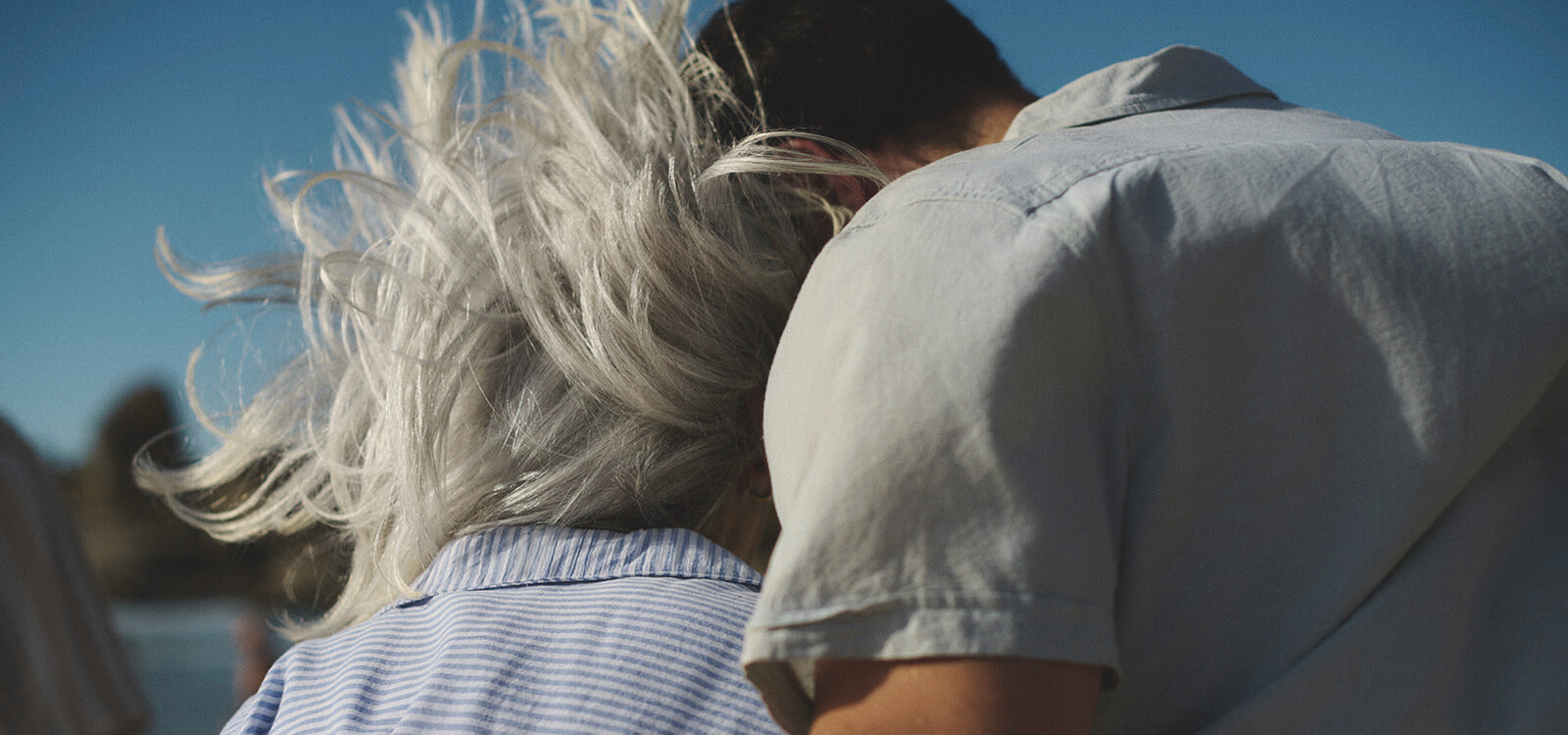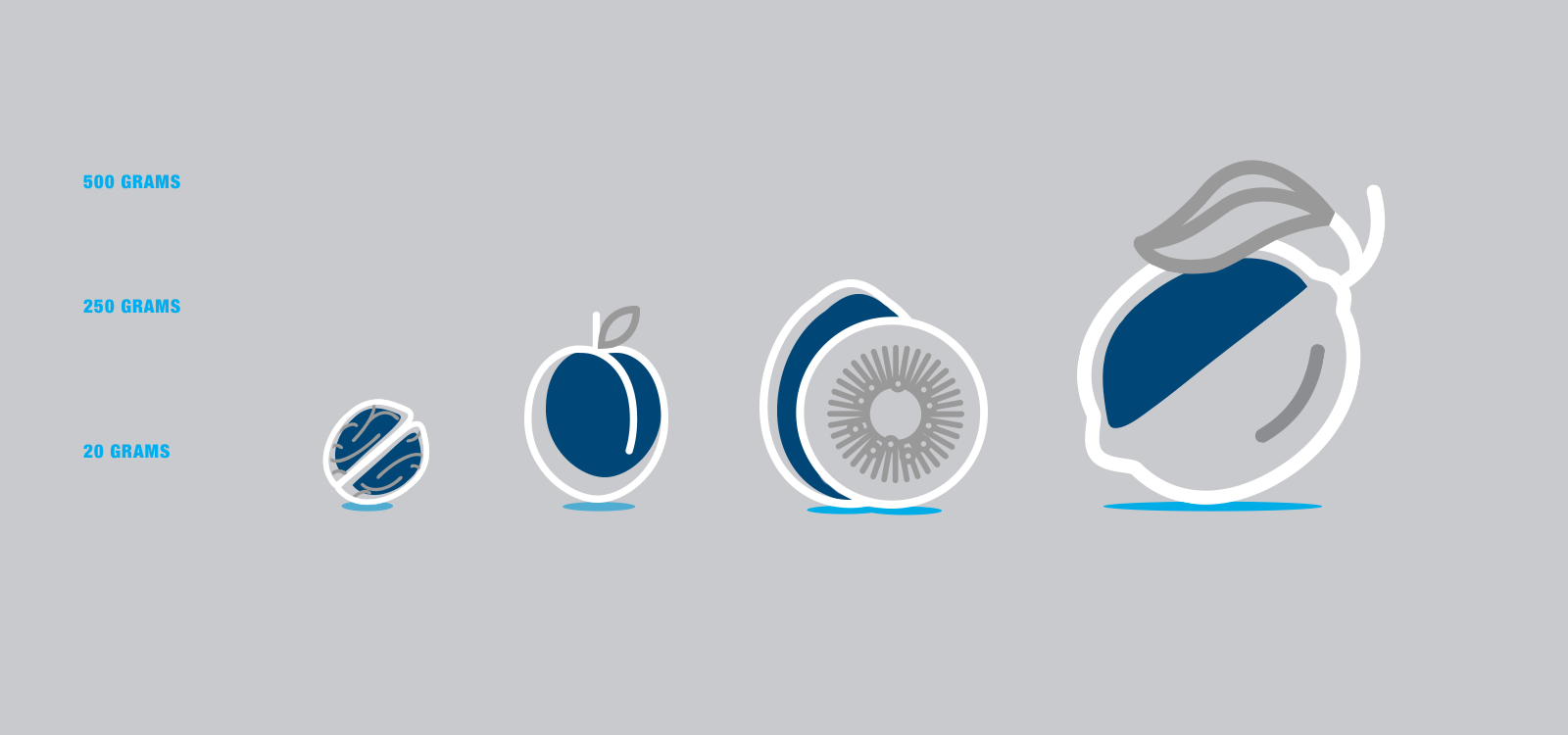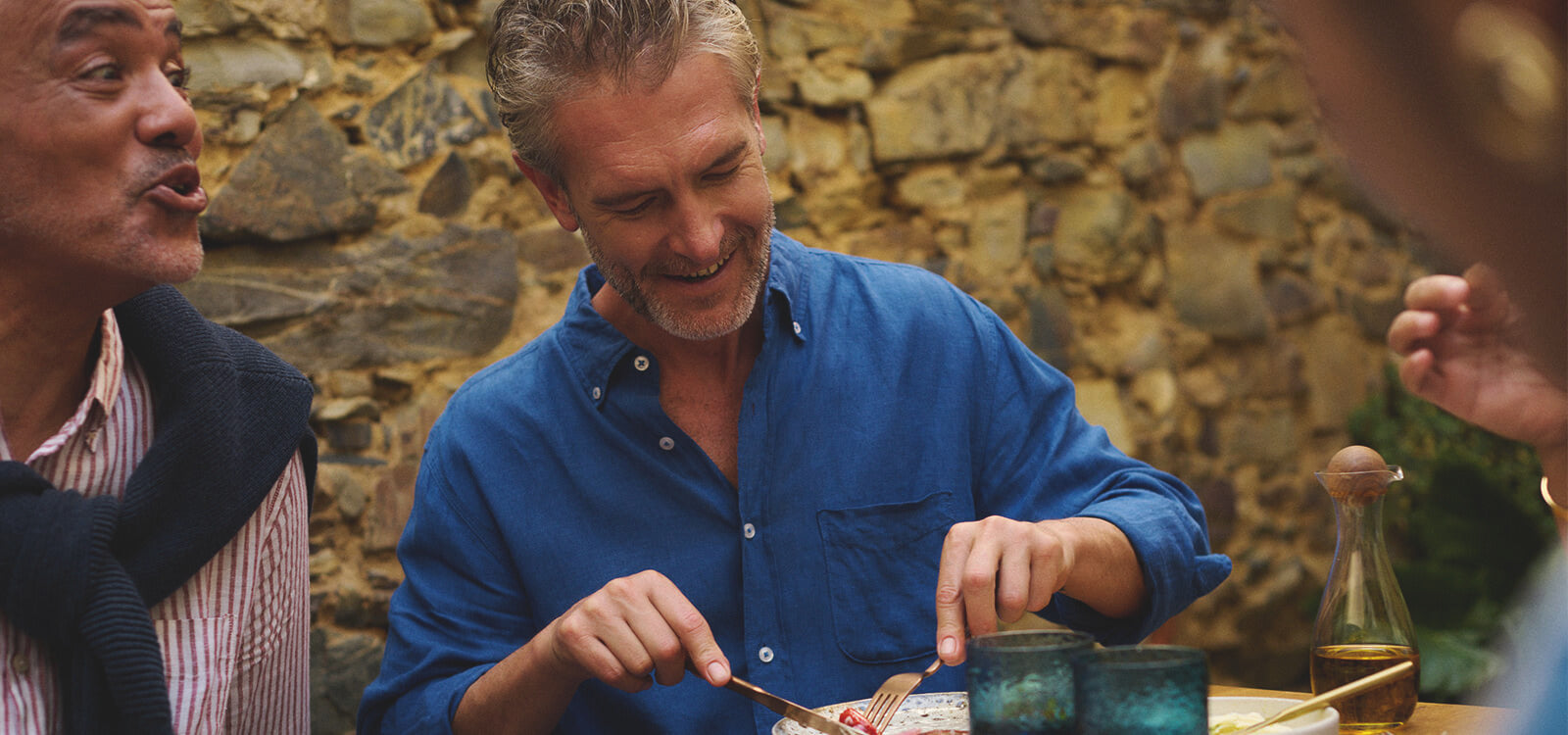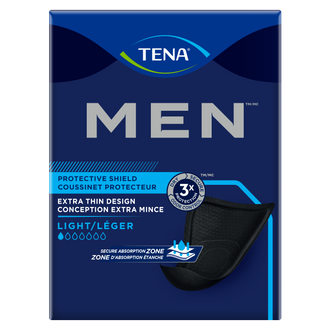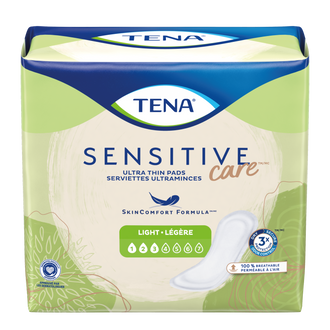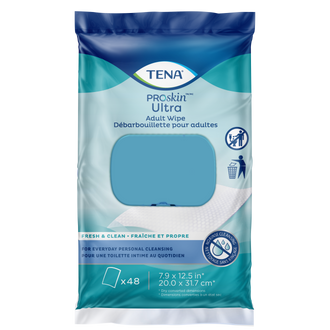Jun 07, 2024
Feeling anxious due to incontinence or experiencing incontinence due to anxiety could be incredibly isolating. Whether anxiety is making your bladder leak, or bladder leaks are making you anxious, know this: you're not in this alone.
In this article, we're diving deep into this tangled connection, sharing insights and solutions to take the weight off your shoulders. Let's figure this out together and find the support that fits just right.
Understanding Incontinence Anxiety
Anxiety-related incontinence at its core is a deeply rooted fear of experiencing incontinence in a public space or situation.1
Picture this: you're out in public, surrounded by a crowd, and suddenly, those anxious thoughts kick in. You worry about losing control of your bladder right then and there. The fear of being caught off-guard, and judged, sends shivers down your spine. Sound familiar?
That's what people with incontinence anxiety face—a constant battle with their bladder, especially when out and about in busy places like malls or restaurants, carrying on with daily life. And if there's an underlying bladder condition, well, that just adds fuel to the fire.
It's crucial to understand that this isn't just a psychological issue—it's a legitimate medical concern that deserves recognition and support if you are struggling.
How Common Is Incontinence Anxiety?
We're still in the dark about how common incontinence anxiety really is, mainly because there hasn't been enough research on it. But from what little we do know; it seems like roughly one out of every five adults grapple with worries tied to incontinence anxiety.1 In fact, research suggests that almost 50 percent of people with an overactive bladder experience symptoms of anxiety.2
So, if you’re feeling ashamed or embarrassed about incontinence anxiety, take a deep breath and be gentle with yourself.3 Just remember, anxiety about incontinence is more common than you might realize, and people are usually much more understanding than we give them credit for.
Exploring the Connection Between Anxiety and Overactive Bladder
The verdict is in, contributors to poor mental health like stress and anxiety may actually contribute to an overactive bladder.2
We also know that stress can mess with your sleep. And when you're not sleeping well, it can make overactive bladder issues worse at night.3 Poor sleep and constant tiredness can take a toll on your physical and mental health, leading to anxiety, depression, and even more stress. This vicious cycle can make symptoms of urinary incontinence and overactive bladder even more challenging to manage.
While the exact mechanism behind why anxiety and stress triggers an overactive bladder still is somewhat elusive, researchers and medical experts have proposed two primary theories.2
The first theory revolves around the body's fight-or-flight response to stress, which heightens nervous system sensitivity. This response, natural to everyone under stress, can become particularly noticeable in individuals with an overactive bladder.2 Their basic reflexes, like emptying their bladder, may become overly stimulated, leading to increased urgency and frequency of urination.2
The first theory revolves around the body's fight-or-flight response to stress, which heightens nervous system sensitivity. This response, natural to everyone under stress, can become particularly noticeable in individuals with an overactive bladder.2 Their basic reflexes, like emptying their bladder, may become overly stimulated, leading to increased urgency and frequency of urination.2
The second theory is that anxiety and stress can induce muscle tension, affecting the muscles surrounding the bladder. This tension can intensify the urge to urinate, further complicating the interplay between psychological stress and bladder function.2
Explore Expert Advice on Types of Incontinence:
- Understanding Urinary Incontinence in Adults
- What is Stress Incontinence?
- Essential Tips for Overactive Bladder Care
Causes of Incontinence Related Anxiety
Despite limited research about incontinence related anxiety, medical professionals have come up with a few different causes.4
Physical factors
It's probable that most people dealing with incontinence anxiety have an underlying physical issue. The culprits can range from getting older to conditions like diabetes, lower urinary tract symptoms (LUTS), or urinary tract infections (UTIs).5
Read > Urinary Tract Infections in Men
Pregnancy, vaginal delivery, and procedures like a hysterectomy or prostatectomy can also play a role, as can neurological disorders such as dementia, multiple sclerosis, or Parkinson's disease.5
Read > Frequent Urination During Pregnancy: Causes and Tips
Emotional factors
On the emotional side, stress and trauma can serve as catalysts, stirring up feelings of vulnerability and fear of loss of control. Past experiences, such as embarrassing accidents or significant life events, may linger in the psyche, intensifying worries about future episodes.5
Lifestyle factors
Lifestyle factors like dietary habits or medications also play a pivotal role. Certain foods and beverages, such as caffeine, alcohol or spicy dishes, can irritate the bladder, increasing urgency and leakage.4,6 Choosing healthier foods can also help you reduce any added weight that might be exerting pressure on your bladder.6
Read > What to Eat and Drink for Bladder and Kidney Health
Exploring these different causes can really help you find what might be triggering your own incontinence anxiety. Whether it's realizing how stress affects your bladder or taking a closer look at what you're eating and the medicines you're taking, understanding these factors can give you the power to take charge.
Symptoms of Incontinence Anxiety
Living with incontinence anxiety can be a real rollercoaster, both physically and emotionally.
Picture this: you're hit with sudden, intense urges to urinate like your bladder has a mind of its own. It can happen anywhere, anytime, and the fear of not making it to the bathroom in time could make you feel like you are not in control of your own body.
The symptoms of incontinence anxiety can vary in intensity, including both physical and behavioral symptoms like1,3:
- Physical symptoms typical of anxiety, such as a racing heartbeat, trembling, muscle tension, sweating excessively, experiencing nausea, and blushing
- Avoidance behaviors like steering clear of public restrooms or limiting the use of public transportation to steer clear of potential embarrassment
- Spending excessive amounts of time in the restroom, making sure that your bladder is completely empty
- Planning your life around always being close to a bathroom, which could place a strain on work and social activities
- Sleep loss due to waking up frequently at night to use the bathroom or being unable to fall back asleep because of anxiety about incontinence.
If you're going through incontinence anxiety, know that your experiences are valid, and you're not alone in this struggle.
How Anxiety and Panic Attacks Can Lead to Incontinence
Many healthcare professionals highlight the link between incontinence anxiety and other mental health issues. In fact, research mentions that 78% of those who suffer from incontinence also report having panic attacks.4
The relationship between the bladder and the brain is quite intricate.3
It's not just a one-way street either.7 Experts suggest that incontinence doesn't just cause anxiety; anxiety can also worsen incontinence, creating a bit of a vicious cycle.7
So, it's like a double whammy where one can worsen the other, fueling a cycle of discomfort and worry.
Effective Strategies to Ease Your Anxiety and Bladder Issues
Managing both the psychological aspects of anxiety and the physical symptoms of incontinence requires a holistic approach to health and well-being. Here's a comprehensive look at various strategies that can help you.
The Role of Incontinence Products
When it comes to managing incontinence, having the right products can make a world of difference in your comfort and confidence. There are many types: incontinence products available, including pads, protective underwear, and bed protectors.
To choose the best option for your comfort, confidence and lifestyle, you should consider factors such as absorbency level, fit and comfort, discretion, and skin health.
By choosing products that prioritize your needs, you can take proactive steps to manage your condition confidently.
Explore a wide range of high-quality Incontinence Products to find the perfect fit for you.
Explore Expert Advice on Incontinence Products:
- How to Wear Male Incontinence Pads, Guards, and Shields: A Step-by-Step Guide
- How Often Should you Change your Pad?
The Benefits of Pelvic Floor Exercises
The group of muscles supporting the pelvis, bladder, and urethra at the bottom of the abdomen is referred to as the pelvic floor muscles.2
To choose the best option for your comfort, confidence and lifestyle, you should consider factors such as absorbency level, fit and comfort, discretion, and skin health.
Incorporating pelvic floor exercises into your daily routine can help to strengthen these muscles and alleviate symptoms associated with urinary incontinence and an overactive bladder.2
Read > Fight Urinary Leaks with Pelvic Floor Exercises
The Calming Effect of Yoga
Yoga is often suggested as a method for alleviating anxiety-related incontinence symptoms, likely because specific yoga practices emphasize mindfulness and promote pelvic floor strength.4
Since these discoveries aren't directly tied to incontinence anxiety, it's wise to approach them with a bit of caution.
Nonetheless, embracing mindfulness can offer many benefits for our overall well-being. So, while it may not directly relieve symptoms of incontinence anxiety, you might discover some unforeseen perks along the way.4
Conclusion
Let’s be real: anxiety incontinence is tough, and it's okay to feel overwhelmed sometimes. But you're not walking this path alone. There's a whole community out here rooting for you.
Whether you're chatting with a healthcare provider, exploring yoga and mindfulness, or tweaking your lifestyle habits, each step forward counts.
So, be kind to yourself, celebrate the wins (no matter how small), and remember, you're not just surviving—you're thriving.
References
1. Mind Over Gut. ‘What is incontinence anxiety?’. 2019. Accessed 12 May 2024. Available from: https://www.bba.mindovergut.com/what-is-incontinence-anxiety/
2. Meissner, M. ‘6 tips for easing stress and anxiety from overactive bladder’. 2023. Accessed 13 May 2024. Available from: https://www.medicalnewstoday.com/articles/tips-for-easing-stress-and-anxiety-from-overactive-bladder
3. National Institute of Health. ‘Sleep disturbance and fatigue are associated with more severe urinary incontinence and overactive bladder symptoms’. 2017. Accessed 31 May 2024. Available from: https://www.ncbi.nlm.nih.gov/pmc/articles/PMC5669629/
4. McLoughlin, S. ‘Incontinence anxiety- what is it and how can I manage it?’. 2024. Accessed 13 May 2024. Available from: https://restless.co.uk/health/healthy-body/incontinence-anxiety-what-is-it-and-how-can-i-manage-it/
5. Mind Over Gut. ‘What is incontinence anxiety?’. 2019. Accessed 12 May 2024. Available from: https://www.bba.mindovergut.com/what-is-incontinence-anxiety/
6. Incontinence Institute. ‘Anxiety and Incontinence’. 2022. Accessed 13 May 2024. Available from: https://myconfidentlife.com/blog/anxiety-and-incontinence
7. Norman Urology. ‘Stress and Incontinence’. 2025. Accessed 11 November 2025. Available from: https://www.normanurology.com/blog/stress-and-incontinence

